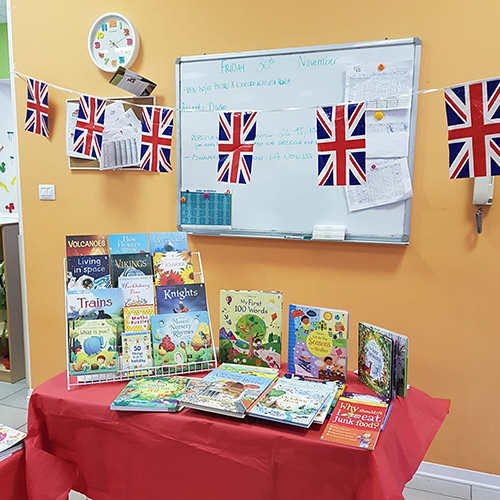Exposing your child to multiple languages: advantage or disadvantage? Let’s dismantle all misconceptions about bilingualism.
Italy is constantly evolving, especially at the multi – language level. It is enough to take a tour in the big metropolises to realize how many cultures, thoughts and languages meet our eyes and especially our ears. Sounds, rhythms and accents so different from our own language that we very often delight in imitating them. Just think of the Chinese language or German: how many times have we thought ” what a difficult language!!!”
“My son at age 2 already knows numbers in English, sings foreign ditties and watches the Masha and Bear cartoon in Russian, should I worry?” Absolutely not.
TWO LANGUAGES REQUIRE TOO MUCH EFFORT TO LEARN.
It is absolutely wrong to think that exposing a child, from an early age, to multiple languages creates confusion, results in language delay, or goes to limit the physiological evolution of development.
Children learn any language effortlessly. From the earliest days of life we speak of brain plasticity; a phenomenon in which we can compare our brain to a sponge that “absorbs” any new information with remarkable rapidity.
Childhood bilingualism is different from learning a new language as an adult. In the latter case we are faced with a language learning system well established by established rules and labels. Therefore, going to live abroad in adulthood, facing a new linguistic reality, results in more difficulties, but it is certainly not an impossible procedure. The child, on the other hand, is a “tabula rasa,” in that he or she has not yet internalized and reinforced any sensory and linguistic knowledge, so he or she will have more flexibility and adaptability to being exposed to and listening to multiple languages.
Paradoxically, the earlier one starts, at learning a second language, the better.
CHILDREN WHO SPEAK MULTIPLE LANGUAGES ARE LITTLE GENIUSES.
It is erroneous to think that the bilingual child, in order to become one, must be basically super intelligent or cognitively endowed with special functions. Basically, all children exhibit the same ability to learn one or more foreign languages. Surely the bilingual is a little speaker with an “extra gear,” both from a neuro-physiological point of view, going on to develop a remarkable cognitive and linguistic flexibility, linked to the different lexical labels of reference, and from a point of view of adaptive abilities in the daily context, especially when he will have to adapt his linguistic choices according to the cultural situation he faces.
Think of a child exposed to 3 languages (Italian, English, and French). Faced with the image of dog he will have the ability to reason about three different lexical labels to identify the animal (Cane, Dog, Chien). Surely this possibility does not hinder but greatly helps the future polyglot.
IN SCHOOL, THE BILINGUAL CHILD WILL HAVE LOW ACADEMIC PERFORMANCE.
Absolutely not true.
Growing up with more than one language results in a number of linguistic and mental advantages; as already mentioned, bilinguals possess two vocabularies for the same object and two ways of expressing the same concept. These abilities lead to advantages in the development of learning to read and write, in understanding the language used in school, and in learning a third or fourth language. It is no coincidence that the teaching of English has been introduced, educationally, as early as kindergarten (around age 3); as well as,are notable, foreign language courses for children. Of course, the play and recreational aspect in learning one or more languages at a developmental age should not be forgotten. A child who is motivated and enjoys learning will be a child who will achieve remarkable goals successfully.
IF EITHER PARENT SPEAKS A FOREIGN LANGUAGE, THE CHILD WILL SPEAK POORLY.
An increasingly common phenomenon is the presence of parents who speak two languages in the same household, due to the different cultural and linguistic backgrounds of both.
What to do in such a case?
There are two languages in the family (the husband speaks Italian and the mother is a native French speaker). How to deal with the little speaker?
Simply, from the birth of the child, both languages will be spoken in the home.
The child will present no problem with the language of the nation where he or she lives; not least because he or she will be continually exposed to the spoken language, through television, the school environment, and the community he or she attends. A foreign parent is a great resource for his or her child. It will be his or her job to motivate and relate to the child, quietly, using the native language.
In short, “Well begun is half done.”
Dr. Marianna Pisciotta – Speech Therapist



